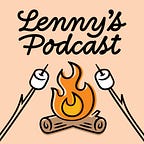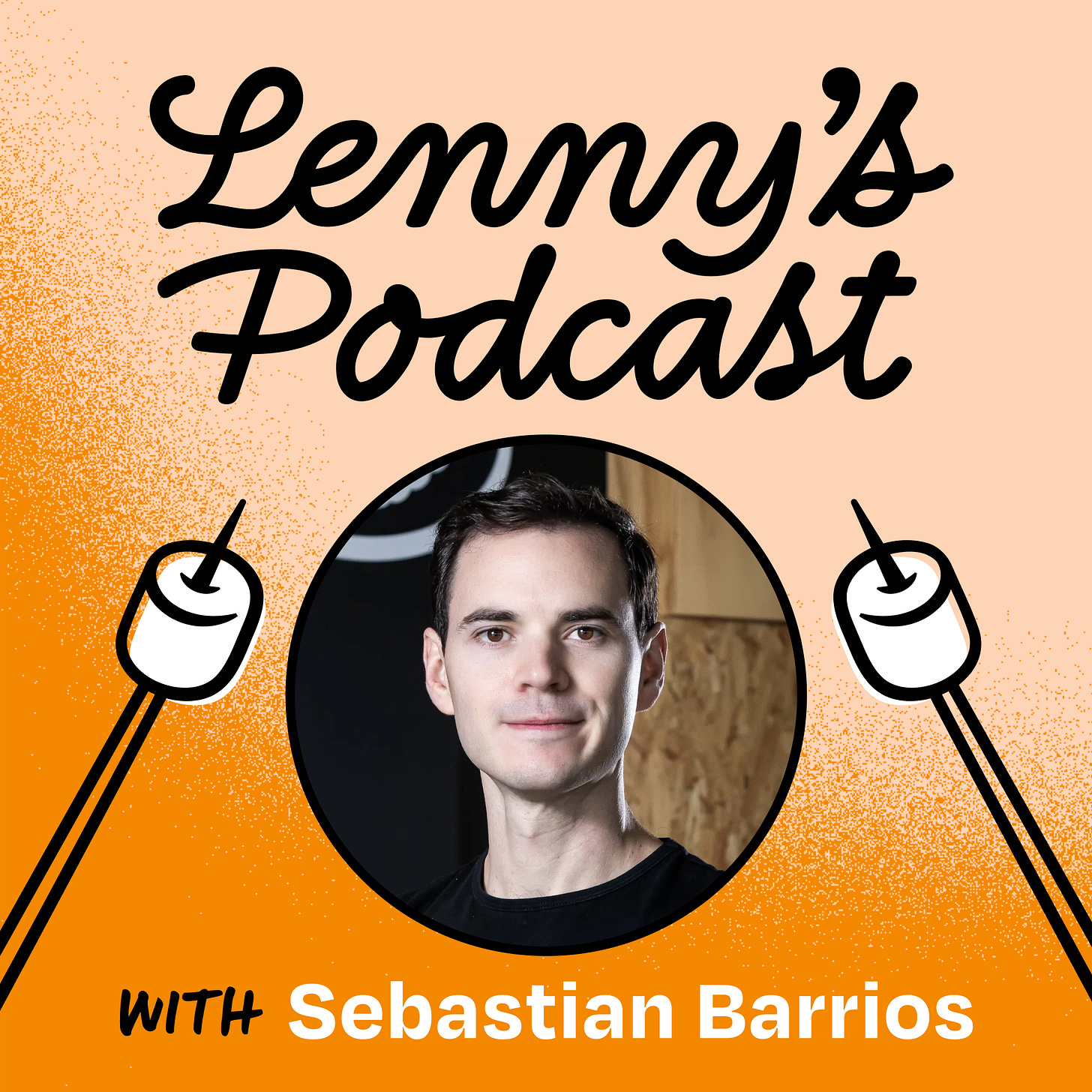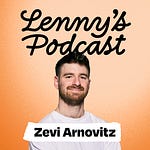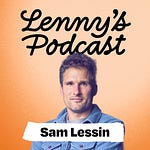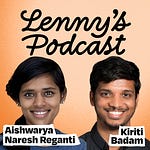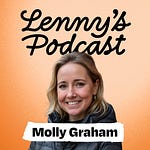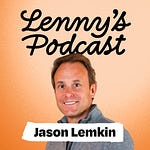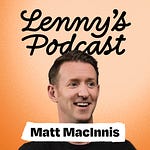Brought to you by:
Merge—A single API to add hundreds of integrations into your app
Vanta—Automate compliance. Simplify security
LinkedIn Ads—Reach professionals and drive results for your business
Sebastian Barrios was the longtime head of product and engineering at Mercado Libre, the largest company in Latin America—valued at over $100 billion and home to more than 100,000 employees. There, he led a team of more than 18,000 engineers across 18 countries and oversaw an astonishing 30,000 code deployments a day. Before Mercado Libre, he founded multiple startups, including a ridesharing company that competed directly with Uber in Latin America. And at just 17, he got a personal phone call from Steve Jobs asking him to take his app off the App Store. Today, Sebastian is the SVP of Engineering at Roblox.
What you’ll learn:
Why Mercado Libre operates with 95% fewer PMs than typical tech companies (and how it actually works)
How to maintain product quality with 30,000 daily deployments and distributed ownership
The weekly email system Sebastian uses to maintain alignment with leadership
How to build a culture of radical candor and direct feedback in a traditionally hierarchical region
The counterintuitive approach to product reviews that keeps 18,000 engineers aligned
How to evaluate hype cycles (crypto, AI) pragmatically while staying innovative
Some takeaways:
Steve Jobs personally called 17-year-old Sebastian, telling him they were banning his battery-draining app and changing the App Store rules as a result.
Mercado Libre has 18,000 engineers but only 1,000 PMs—about 5% compared with the typical 20% to 30% ratio. They hire engineers who can understand both what’s technically possible and what users actually need. The key is that their interview process tests for product thinking, not just coding skills. As Sebastian puts it, “We don’t let titles determine who owns the product.”
The weekly email that Sebastian learned from . . . me. Sebastian uses my “State of Me” email format. Every week, he sends his CEO an update with what he did, what’s next, and where he needs help. It’s freed up their one-on-one time for strategic discussions. His addition to my framework: he shares these with his broader team too, creating radical transparency about priorities.
Mercado Libre ships more code daily (30,000 times more!) than most companies ship monthly. The secret: their internal platform handles all the scaling, security, and compliance automatically. Engineers just focus on building user value. This platform-first approach lets them scale from thousands to tens of thousands of engineers without everything breaking.
Marcos Galperin, Mercado Libre’s CEO, always asks first, “How’s the user going to experience this?” Not revenue. Not metrics. User experience. Only after nailing the user flow do they discuss business impact. This order matters—Sebastian’s seen profitable features killed because they confused users, and revenue actually went up long-term.
Latin American business culture traditionally avoids direct confrontation. Mercado Libre changed this by example—leadership gives brutally honest product feedback in public reviews. The key phrase that makes it work: “This is about the product, not about you.” They literally promote people based on their ability to disagree productively.
Teams get near-total autonomy. No OKRs cascading down. Just high-level company objectives (3 to 5 bullet points) refreshed quarterly. The catch: extreme accountability. Teams present outcomes regularly, and peer pressure drives performance more than top-down management ever could.
Sebastian drinks only water. No coffee, tea, alcohol, or juice. He also doesn’t listen to music (despite his dad being an orchestra conductor). These aren’t quirks—they’re conscious choices about mental energy. “I like my brain. Why would I alter it with chemicals?” This discipline extends to how he evaluates technology trends.
Sebastian’s mom literally trained him “like a spy”—dropping him in random parts of Mexico City to find his way home, sending him on solo international trips as a kid. This built the independence and problem-solving skills he uses daily. The lesson: Great leaders are often built through unusual experiences, not traditional paths.
Where to find Sebastian Barrios:
• LinkedIn: https://www.linkedin.com/in/zebas/
In this episode, we cover:
(00:00) Introduction to Sebastian Barrios and Mercado Libre
(05:03) Mercado Libre’s scale and unique ways of operating
(14:48) AI’s impact on operations
(19:19) Empowering teams and reducing fear of failure
(34:20) The importance of radical candor
(38:26) Weekly updates
(41:03) Avoiding hype cycles
(44:24) When Steve Jobs personally called 17-year-old Sebastian
(49:00) Building successful app businesses
(55:33) Unique personal habits
(01:04:00) Raising independent children
(01:07:15) Lightning round and final thoughts
Referenced:
• Mercado Libre: https://www.mercadolibre.com/
• Claude: https://claude.ai/
• Salesforce: https://www.salesforce.com/
• Nvidia: https://www.nvidia.com/
• TikTok: https://www.tiktok.com/
• Adobe: https://www.adobe.com/
• Uber: https://www.uber.com/
• OpenAI: https://openai.com/
• Marcos Galperin on LinkedIn: https://www.linkedin.com/in/marcosgalperin/
• Cursor: https://www.cursor.com/
• Windsurf: https://windsurf.com/
• Which companies produce the best product managers: https://www.lennysnewsletter.com/p/which-companies-produce-the-best
• Which companies accelerate PM careers most: https://www.lennysnewsletter.com/p/which-companies-accelerate-your-pm
• How Revolut trains world-class product managers: The “local CEO” model, raw intellect over experience, and a cultural obsession with building wow products | Dmitry Zlokazov (Head of Product): https://www.lennysnewsletter.com/p/how-revolut-trains-world-class-product-managers
• Intercom: https://www.intercom.com/
• Atlassian: https://www.atlassian.com/
• Radical Candor: From theory to practice with author Kim Scott: https://www.lennysnewsletter.com/p/radical-candor-from-theory-to-practice
• Managing up: https://www.lennysnewsletter.com/p/managing-up
• Steve Jobs: https://en.wikipedia.org/wiki/Steve_Jobs
• Tobi Lütke’s leadership playbook: Playing infinite games, operating from first principles, and maximizing human potential (founder and CEO of Shopify): https://www.lennysnewsletter.com/p/tobi-lutkes-leadership-playbook
• Everything Everywhere All at Once: https://www.imdb.com/title/tt6710474/
• Dune on Max: https://www.max.com/movies/dune/e7dc7b3a-a494-4ef1-8107-f4308aa6bbf7
• Bluey on Disney+: https://www.disneyplus.com/browse/entity-fa6973b9-e7cf-49fb-81a2-d4908e4bf694
• Mentava: https://www.mentava.com/
• Matt Bateman’s website: https://mattbateman.xyz/
• Beast Academy: https://beastacademy.com/
• David protein bars: https://davidprotein.com/
• Marc Andreessen on X: https://x.com/pmarca
• Tatami mats: https://en.wikipedia.org/wiki/Tatami
Recommended books:
• Radical Candor: Be a Kick-Ass Boss Without Losing Your Humanity: https://www.amazon.com/Radical-Candor-Kick-Ass-Without-Humanity/dp/1250103509
• High Output Management: https://www.amazon.com/High-Output-Management-Andrew-Grove/dp/0679762884/
• The Odyssey: https://www.amazon.com/Odyssey-Homer/dp/0140268863
• The Dream Machine: https://www.amazon.com/Dream-Machine-M-Mitchell-Waldrop/dp/1732265119/
• Dune: https://www.amazon.com/Dune-Chronicles-Book-1/dp/0441013597/
Production and marketing by https://penname.co/. For inquiries about sponsoring the podcast, email [email protected].
Lenny may be an investor in the companies discussed.


